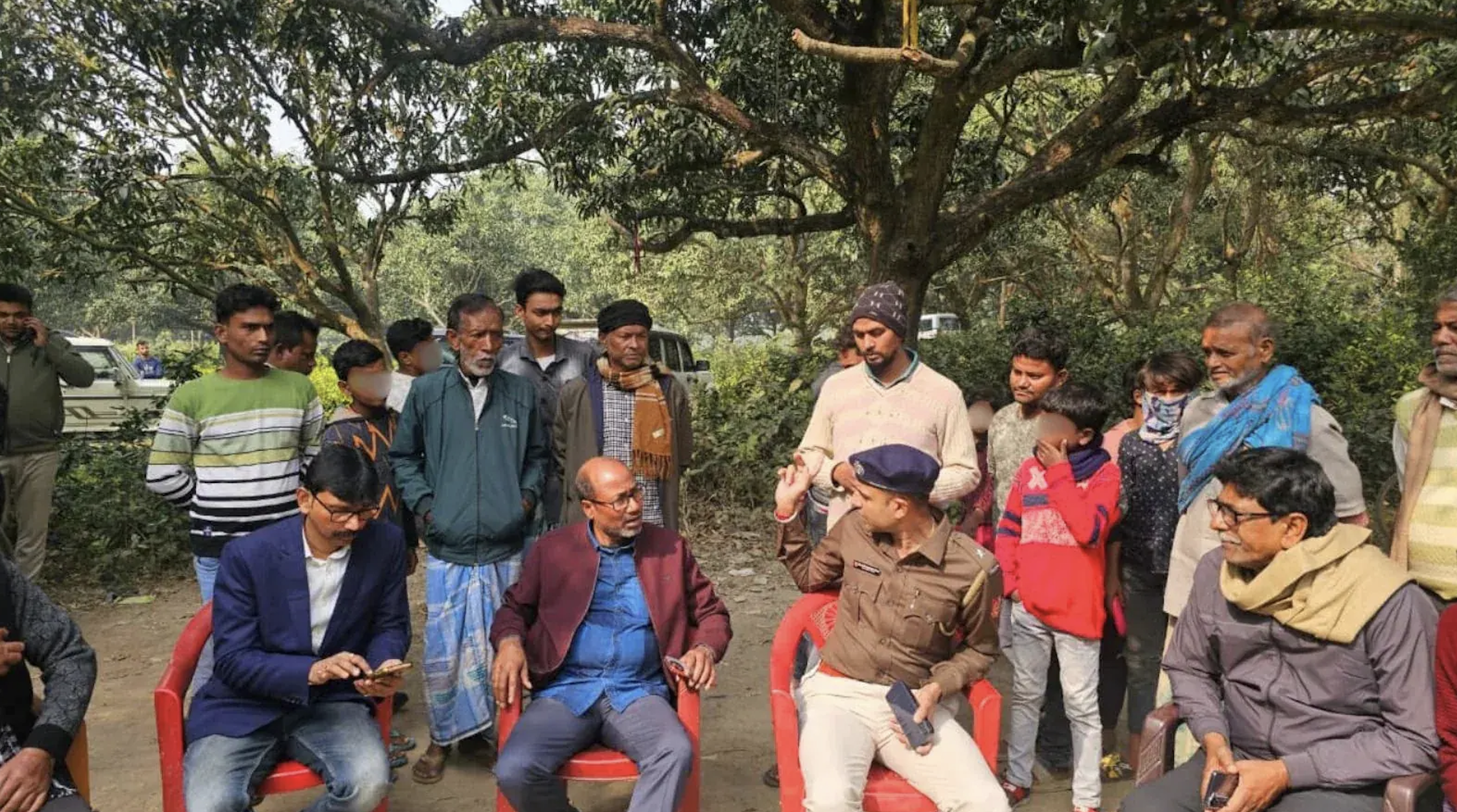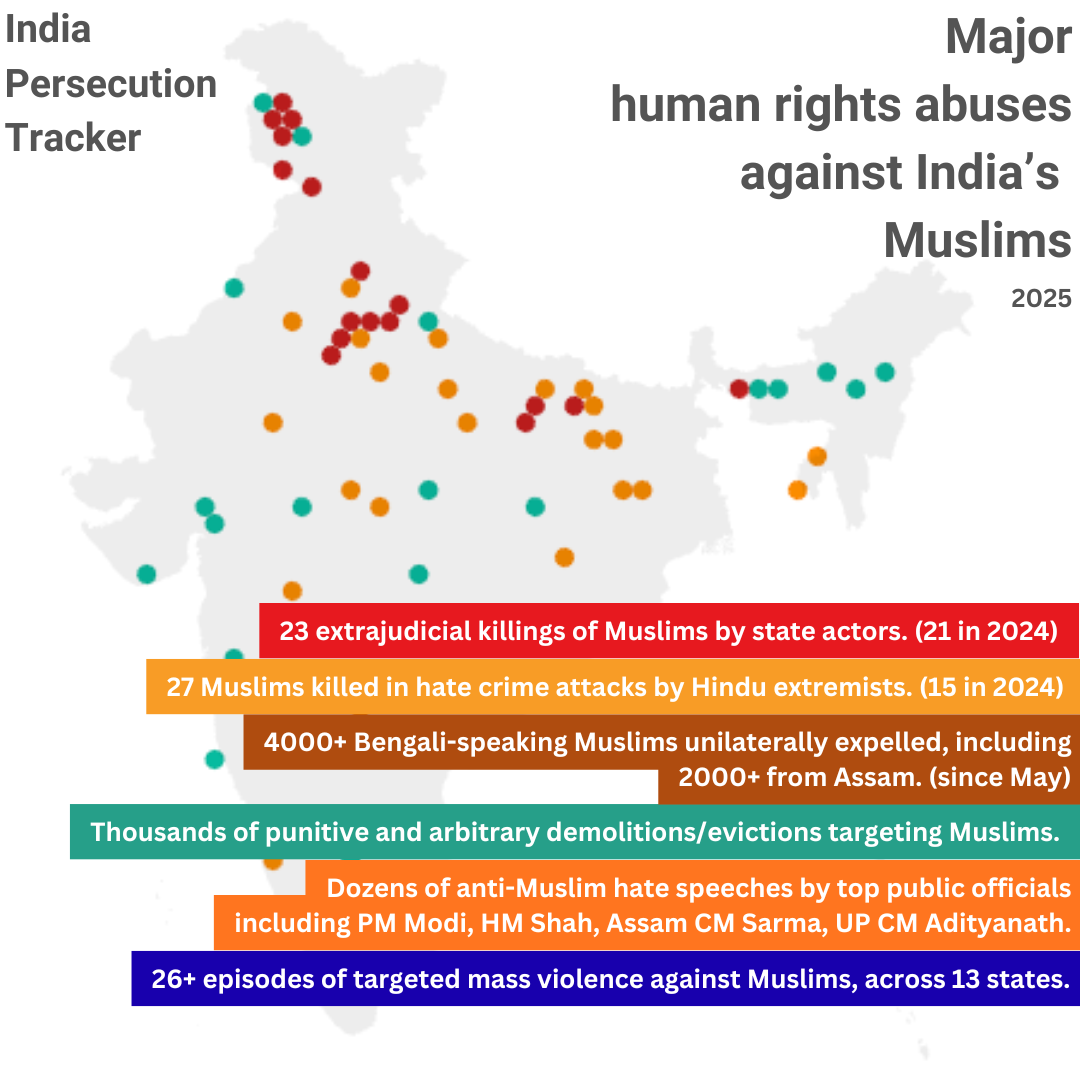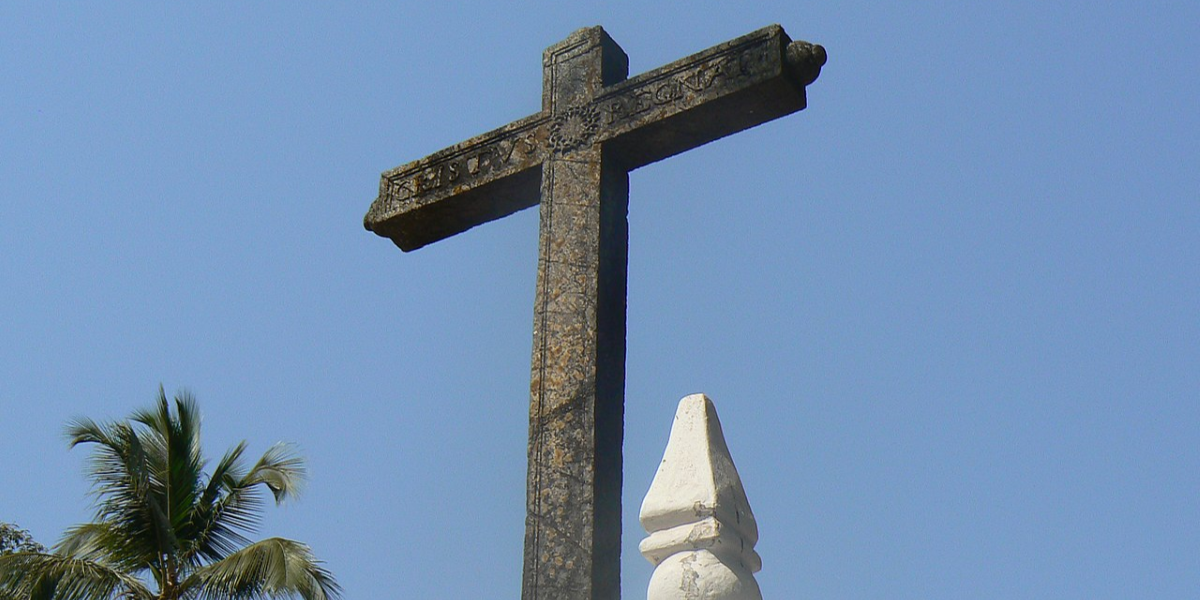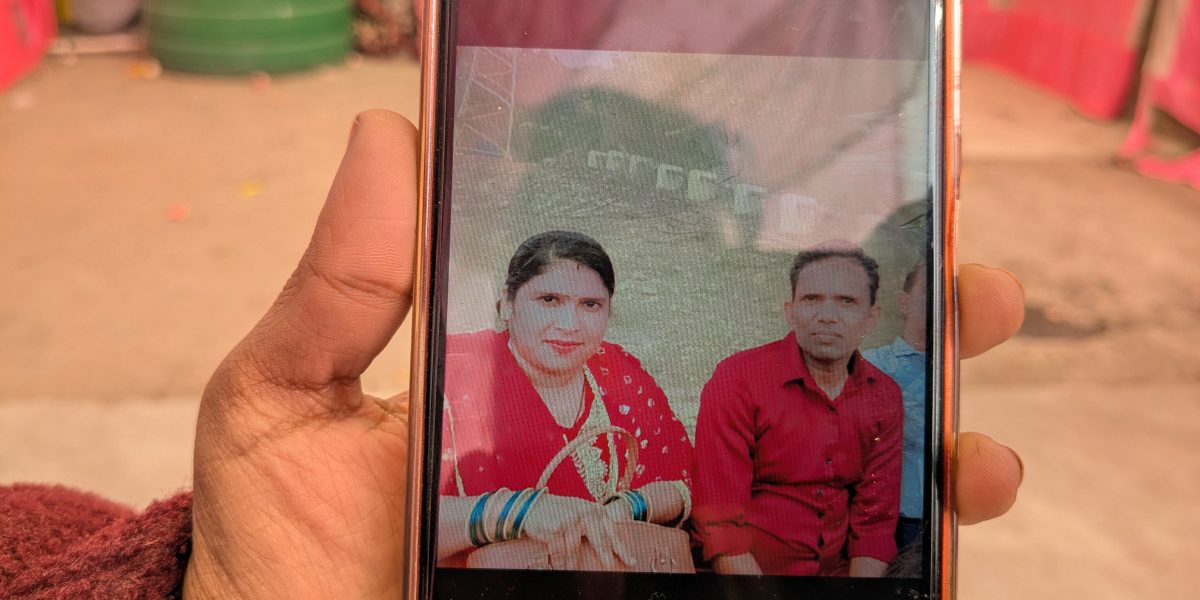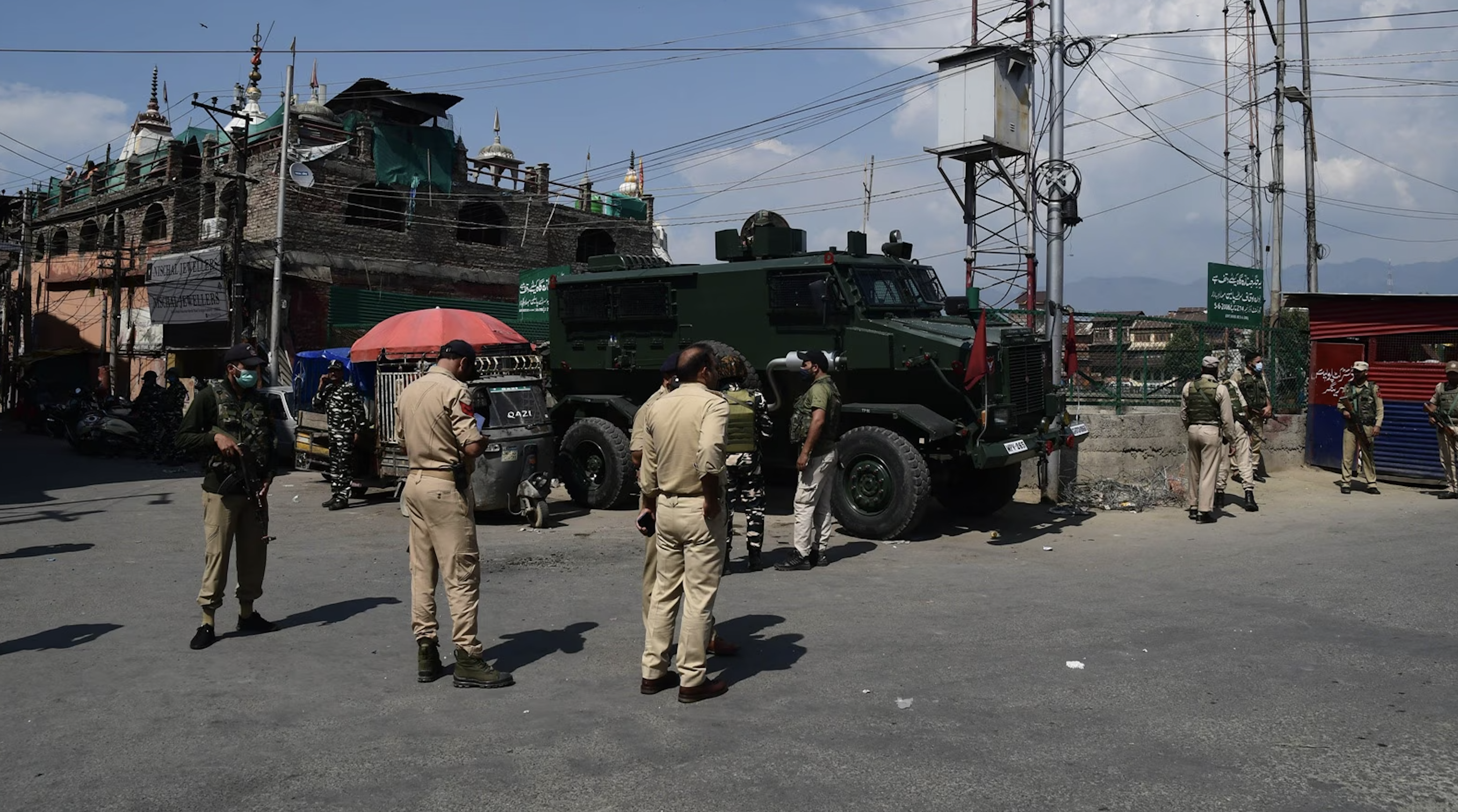
By Rajini Vaidyanathan and Dilnawaz Pasha / BBC
No action has been taken against the officers involved. The families of those who were attacked say their loved ones are innocent and should be freed.
“This is my brother, they are beating him a lot, he’s screaming so much.”
Zeba breaks down in tears, hands shaking, as she holds her mobile phone to watch a harrowing video of her younger sibling Saif.
“I can’t even look at this, he’s being hit so badly,” she says, as she’s comforted by relatives at her home in the north Indian city of Saharanpur.
The distressing footage shows two Indian policemen taking aim at a group of Muslim men in custody, including Zeba’s brother.
The officers can be seen thrashing the men with rods which they swing like baseball bats. The sound of the thwack as each blow lands is punctuated by screams.
“It hurts, it hurts…NO!” some of the group yell as they cower in fear, backs against the wall.
As the pounding continues, a man in a green t-shirt folds his hands in prayer. Saif can be seen in a white tunic raising his arms in the air as if to surrender.
Saif, 24, was one of dozens of Muslim men who were rounded up and detained by police last week.
Thousands demonstrated at the town’s mosque after Friday prayers, joining nationwide protests over inflammatory remarks about the Prophet Mohammed made by Nupur Sharma, a national spokesperson for the ruling Hindu nationalist Bharatiya Janata Party (BJP).
The party later suspended her amid an outcry from Muslim nations, and said it opposed insulting any religion.
The protests in Saharanpur were largely peaceful, with crowds marching from the mosque past shops in the city.
As tensions rose, some stores owned by members of India’s Hindu majority were attacked, and two businessmen sustained minor injuries. Officers used batons to disperse some of the crowds.
Police documents accuse Saif and 30 others of being involved in rioting, instigating violence, voluntarily causing hurt to deter a public servant and endangering life, among other charges.
The family, which ekes out a modest living selling cardboard, says Saif wasn’t even at the protests and is innocent.
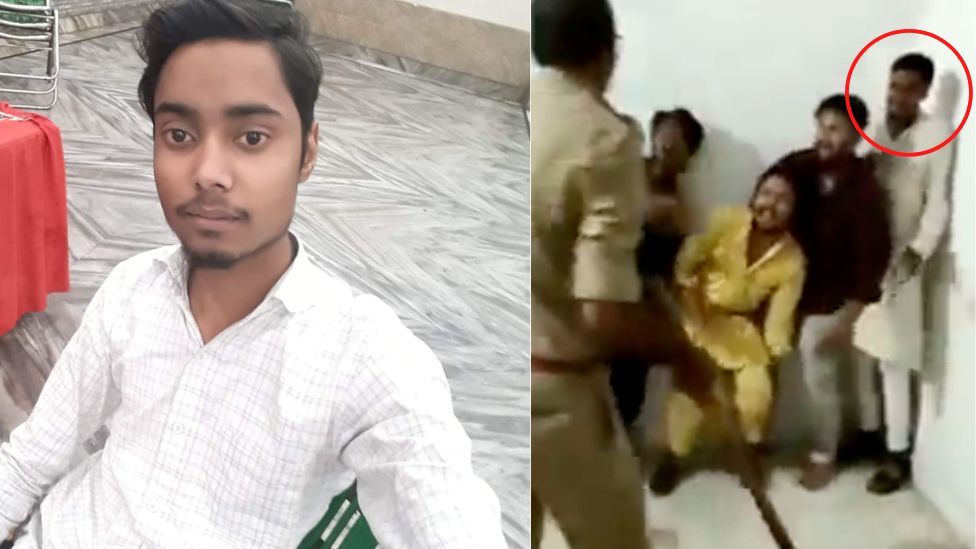
They say he left home at around 5pm local time on Friday, to book a bus ticket for a friend, when he was arrested by officers and taken to Kothwali police station, in Saharanpur.
When Zeba visited him there she said she saw bruises on her brother’s body: “He was blue from all the beating, he couldn’t even sit.”
The video, which clearly shows police brutality, went viral after it was shared by an elected official from the BJP, Shalabh Tripathi, who posted it with the caption, “a return gift for the rebels”.
Mr Tripathi is a former media adviser to one of India’s most powerful politicians, Yogi Adityanath, the chief minister of the state of Uttar Pradesh, where this incident happened.
There has been no condemnation of the footage from party officials, or anyone in the BJP government.
Human rights groups say there’s been a growing climate of intolerance in India since the BJP swept to power in 2014, with a rise in hate speech and attacks targeting the country’s Muslim minority.
The BBC has gathered testimony from half a dozen Muslim families who say their relatives were beaten in police custody at Kothwali police station in Saharanpur, after they were detained on Friday.
The relatives have also identified them in videos, which show police using violence. In other footage the men can be seen being led into a van before being taken to another location – in these images the sign for the Kothwali police station is clearly identifiable.
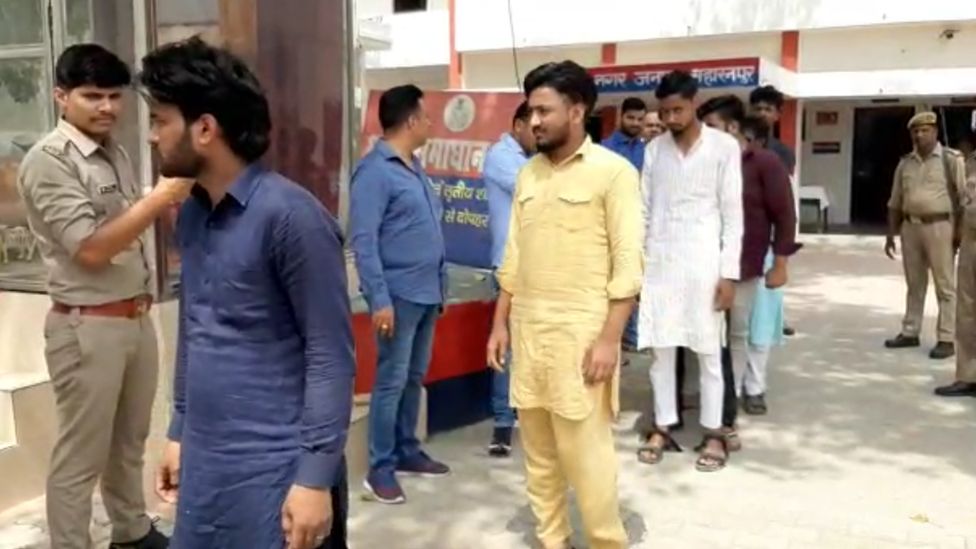
The police report also cites the station. Despite this, earlier in the week local police denied the incident had happened there.
“No such incidents have happened in Saharanpur, there are two to three videos circulating on social media. If you watch one video on slow motion – you will see the name of some other district in the video,” Akash Tomar, a senior police officer, told the BBC.
Mr Tomar has since said he is working to verify the authenticity of the video, and will take action if required.
Other relatives of men seen in the video say their loved ones were detained as they went to visit the station for more information.
Fahmida’s son Subhan, who’s 19, went to find out what had happened to his friend Asif who’d been arrested, when he was also taken in and beaten.
Dressed in pale yellow, Subhan can be seen dropping to the ground as a policeman strikes a baton in his direction. The family say Subhan didn’t even go to the main mosque on Friday, let alone take part in the protests there.
“My son was beaten mercilessly,” Fahmida cried.
Officials say they’ve arrested 84 people they accuse of violence in Friday’s protests.
Superintendent Kumar told the BBC that only criminals were arrested. “When we arrest someone we first show their footage of participating in a violent protest and then only we make arrests,” he said, his statement at odds with accounts we’ve heard from families of some of the arrested.
Across town from the police station, the force of the law has been displayed in other ways – bulldozers have destroyed parts of the homes of two Muslim men officials accuse of instigating violence.
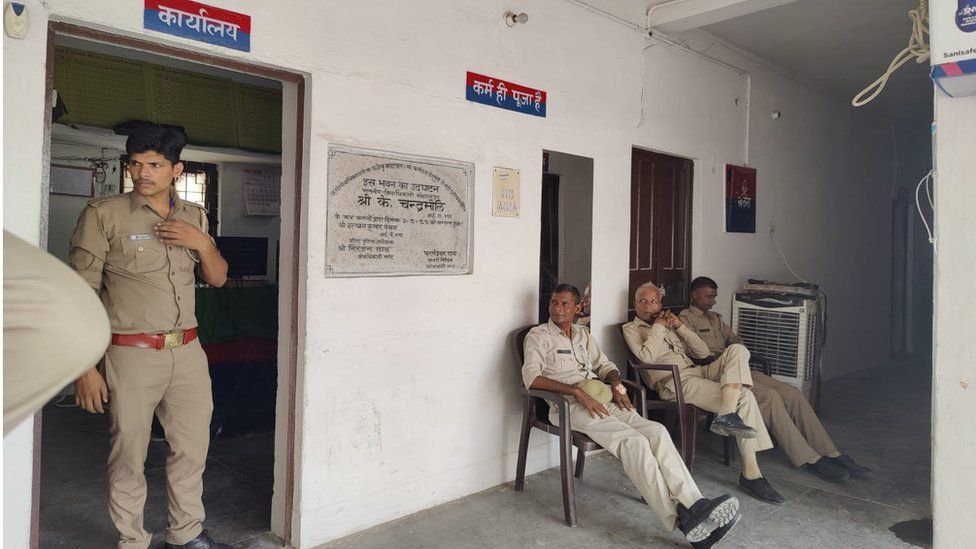
Millions of Indians live in makeshift homes without proper planning permissions, but using this as a means of punishment has become a more common tactic deployed by the BJP.
The orders to demolish illegally constructed properties belonging to those accused in recent protests have been endorsed at the highest level.
Uttar Pradesh’s Chief Minister Yogi Adityanath tweeted that bulldozer action would continue against alleged lawbreakers.
And, in a tacit reference to Muslims who worship on Fridays, his media adviser Mrityunjay Kumar tweeted a photo of a bulldozer with the caption “After Friday, there is a Saturday.”
Last Saturday afternoon, a digger arrived at Muskaan’s house and started to demolish the front gate.
Police showed up at the rented property with a photo of her brother asking if he lived there. The 17-year-old had been taken into custody the day before.
“My father confirmed that that was his son, and asked if something had happened,” Muskaan said. “They didn’t reply, they just suddenly started using the bulldozer.”
Officials accuse the teenager of encouraging violence on Friday. An official showed the BBC a video they say shows him instigating the crowd.
In it he can be seen making a speech to those gathered: “The Muslims of this country are sleeping. History is a witness to the fact that whenever a Muslim has risen, he has risen with wrath,” he says.
Muskaan denies all the allegations against her brother: “He is not the one to cause destruction, he is not this kind of a boy to break things… All of this is a lie.”
Officials told the BBC that the families of those arrested were given notice that their homes were illegally constructed without proper approvals.
“When we investigated we found that his family is living in an unauthorised house of a relative,” Rajesh Kumar, a senior police official, told the BBC, justifying their actions.
“The municipal team visited the homes under tight police security and action was taken,” Mr Kumar told the BBC, as he warned the homes of more people who’ve been arrested could be bulldozed.
“The bulldozer will roll if anything illegal comes against those who are arrested and sent to jail,” he added.
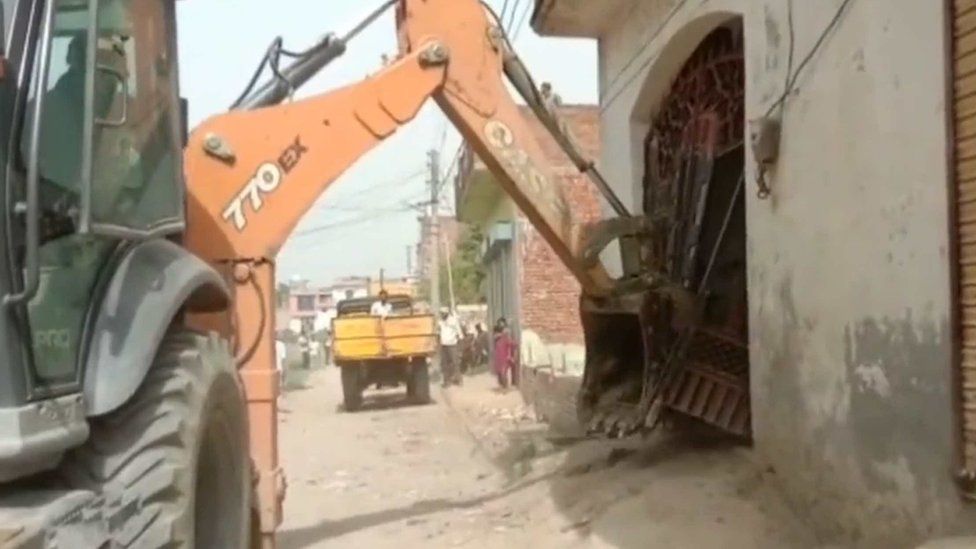
The bulldozer action was all done according to the law and “as per procedure…nothing is done against the law”, Navneet Sehgal, an adviser to Mr Adityanath, told the BBC.
A group of India’s top legal experts, including former judges and pre-eminent lawyers, have petitioned the country’s Supreme Court over these latest instances of police beatings and the unwarranted use of bulldozers.
Their letter accuses Mr Aditynath of emboldening the police to “brutally and unlawfully torture protesters”, and says these latest actions are “shaking the conscience of the nation”.
“Such a brutal clampdown by a ruling administration is an unacceptable subversion of the rule of law and a violation of the rights of citizens, and makes a mockery of the Constitution and fundamental rights guaranteed by the state.”
Rights group Amnesty international has also accused India’s government of suppressing any form of dissent: “The government of India is selectively and viciously cracking down on Muslims who dare to speak up and peacefully express their dissent against the discrimination faced by them.
“Cracking down on protesters with excessive use of force, arbitrary detention and punitive house demolitions by Indian authorities is in complete violation of India’s commitments under international human rights law and standards,” Aakar Patel, chair of Amnesty International India Board, wrote in a statement.
Back in Saharanpur, Munni Begum is also in distress, as she waits on news of her son and husband, who she says were also beaten by police.
She’s unsure when they’ll return, and whether they’ll even have a home to come back to.
“My innocent son and husband are in jail, I am alone with my daughters in this newly-built home.
“I fear what will happen to us if they bulldoze it. I can’t sleep at night.”
This article first appeared on bbc.com


